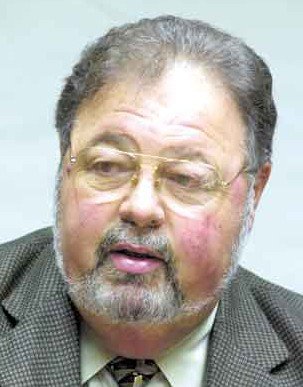The county will be in the red through 2012 and new taxes, land
development and attrition are all options on the table for
consideration, Santa Clara County Supervisor Pete McHugh said
Tuesday afternoon during his state of the county speech in San
Jose.
The county will be in the red through 2012 and new taxes, land development and attrition are all options on the table for consideration, Santa Clara County Supervisor Pete McHugh said Tuesday afternoon during his state of the county speech in San Jose.
Although McHugh said he wants to protect 1,700 county jobs from elimination, fellow Supervisor Don Gage, who represents South County, had a different opinion.
“The only option we have is to reduce services,” Gage said. “Services mean people.”
Although the county has already slashed its budget by a third, or about $925 million, next fiscal year’s $3.5 billion budget is expected to see a shortfall of $207 million, Gage said.
County executive Peter Kutras, Jr. said it may go as high as $226 million, basing his projections on cutbacks proposed in the governors budget.
“We’ve got what already was a grim situation looking darker,” Kutras said.
The previously calculated deficit of $155 million was projected before Gov. Schwarzenegger announced his fiscal 2008-09 budget earlier this month. The state and the county’s fiscal year begins June 31.
“We don’t see anything getting better through 2012,” Gage said.
In his speech before a standing-room only crowd at the County Government Center at 70 Hedding St., McHugh outlined a strategy to deal with the financial setbacks through a three-pronged strategy that includes going to voters to ask for a sales tax increase, soliciting offers from developers to build out the county fairgrounds and other open land and also cut services – but not people.
“The solution is not going to be to reduce the amount of employees,” McHugh said.
Entering the 2009 fiscal year July 1, the county is projected to bring in only 90 percent of the revenue it needs to offer all the services it currently does, county spokeswoman Gwen Mitchell said.
The flow of state money into county coffers has dwindled since 2004, when it comprised 64 percent of the county’s budget. Now, it comprises 54 percent, McHugh said.
McHugh said the county has $87.7 million saved up for the lean years now and to come. Two percent of the county’s revenues had been set aside in the past years, in accordance to board policy. The county recently updated that policy to set aside 4.7 percent in the coming years to build up its savings for unexpected or unplanned needs, he said.
The county has taken steps to keep revenue, primarily through “structural changes” such as prepaying employee pension contributions, McHugh said. That has only produced “modest savings,” and deficits are still expected to hover between $155 million to $165 million every year through 2012.
In his speech McHugh implored that voters approve a sales tax, but Gage said he wouldn’t support it because it wouldn’t raise enough money.
“It’ll be difficult for me to support the sales tax,” Gage said. “It makes the poor, poor. We’d generate $160 million by a half-cent tax. Our deficit is over $200 million.”
Gage wasn’t against the 9-1-1 fee proposed by McHugh, a controversial way to raise funds because it’s a cost-recovery strategy that’s viewed as a thinly disguised tax by taxpayer groups.
“We got to get cost recovery,” Gage said.
Despite the negative news throughout most of his speech, McHugh pointed out that during his previous term on the board, it was able to manage the budget.
“We must confront our reality and make our destiny,” he said.













